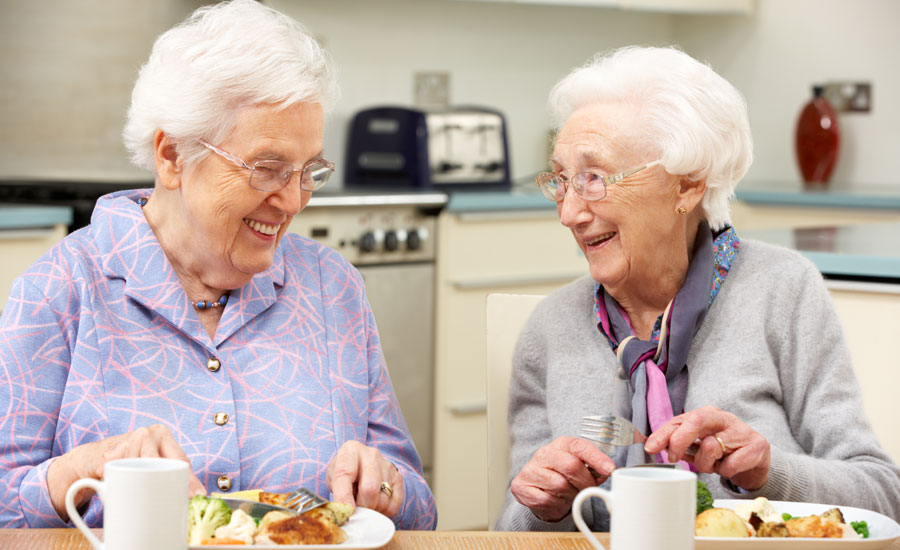The Surprising Truth About Nutrition and Meals in Care Homes

Making sure your loved one eats well in a care home is a top priority. So, what are they serving and are the meals up to scratch? All care homes have CQC nutrition standards to meet – but what does that look like? Read on to learn more about nutrition and meals in care homes.
What Are the Nutrition Standards in Care Homes?
Nutrition in care homes ensures every meal supports residents’ health and well-being. Here’s what care homes need to get right:
Balanced and Varied Meals
Nutritional basics, including proteins, carbs, fats, vitamins and minerals, must be covered.
Personalised Nutrition Plans
According to CQC Regulation 14, care homes must tailor meals to individual health conditions, dietary restrictions and personal preferences.
Catering to Special Diets and Allergies
Whether it’s gluten-free, low-sugar or vegetarian, care homes must adjust their menus to meet specific dietary needs safely, taking allergies seriously.
Regular Mealtimes and Snacks
Consistent meal times and snacks help maintain energy and ensure that residents who eat less at main meals still get enough nutrients throughout the day.
Keeping Residents Hydrated
Hydration is just as important as food for older adults. Care homes ensure residents have easy access to drinks and encourage fluid intake throughout the day.
Ongoing Monitoring
Nutrition needs change, so regular checks on dietary needs and adjustments to meals are essential to keep residents healthy.
Trained Staff
Staff are trained to understand nutrition, spot problems and work with experts when needed.
The Importance of Proper Nutrition in Care Homes
Good nutrition for residents in care homes enables optimal health and well-being. Here’s why it matters:
Better Physical Health
Nutritious meals help elderly residents maintain a healthy weight while keeping muscles strong and reducing the risk of malnutrition and illness. Care home staff must ensure residents get adequate protein, calories and nutrients while considering conditions like diabetes or heart disease.
Improved Mental Health
What we eat affects how we think and feel. A balanced diet can boost mood, alleviate anxiety and support brain function, which is extra important for residents with dementia or other cognitive issues.
Enhanced Quality of Life
When food is tasty, nourishing and appealing, it makes a real difference, turning eating into a positive part of the day. The social aspect of mealtimes also enhances everyday life for residents.
Reduced Hospital Visits
Good nutrition can help prevent dehydration, falls and pressure sores, leading to fewer trips to the hospital and stabilising health.
Increased Sense of Control
Various food choices let your loved one feel more involved and in control of their daily routines, giving them overall satisfaction.
Innovations and Improvements in Care Home Nutrition
Care homes are moving away from bland, one-size-fits-all meals, with many bringing in NHS dietitians to help staff create meals customised for each dietary need and individual taste.
There’s also a growing trend towards using fresh, locally sourced ingredients instead of relying on processed or frozen foods. Some homes even grow their own veggies, where residents can get stuck into gardening, adding a bit of fun and freshness to their meals.
Ready to explore...
Technology is also starting to play a big role in meal management. Some care homes use apps and software to update staff on residents’ dietary needs, preferences and allergies.
Residents are also being given more say in what’s on the menu. Modern care homes are setting up food committees, hosting taste-testing events and regularly asking for feedback so that the food served is what people actually want to eat.
How Can Families Make Sure a Loved One Receives Proper Nutrition
A fully functioning and registered care home will surely provide for your loved one’s dietary requirements, but families can also help loved ones receive good nutrition when living in care homes.
Start by asking the right questions about meal planning when choosing a care home. How do they handle dietary needs and special requests? And what do other residents have a say about what’s being served? Checking the menus and visiting during mealtimes can give you a clear idea of the food quality, portion sizes and experience.
Encourage your loved one to participate in food choices and speak up about their likes and dislikes. Most homes offer multi-choice menus, but if they don’t want anything from it, they’re more than welcome to ask the chef to prepare something else.
Making Nutrition a Priority in Care Homes
From individualised meal plans and fresh ingredients to involving residents in food choices, care homes are making huge strides to improve everyday dining experiences. By working with dietitians, residents and family, care homes can ensure that meals are nourishing in every way.
